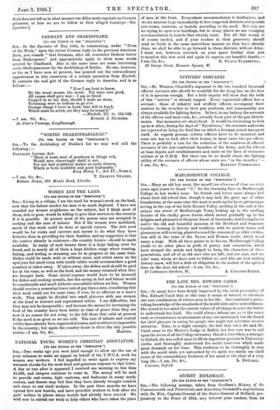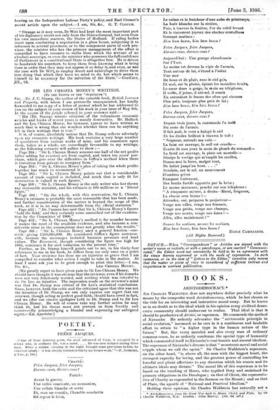SECRET DIPLOMACY.
[TO THE EDITOR 01 THE " SPECTATOR"' Snt,—The following passage, taken from Gardiner's History of as Commonwealth and Protectorate, and describing Cromwell's negotiations with De Witt, Captain-General of the States-General of Holland, pre- paratory to the Peace of 1654, may interest your readers, from its
bearing on the Independent Labour Party's policy, and Earl Cromer's. recent article upon the subject. —I am, Sir, &e., G. T. Ci.oreu.
" Strange as it may seem, Do Witt had kept the most important part of his diplomacy secret not only from the States-General, but even from his own immediate masters, the States of Holland. If ruling bodies insist upon conducting a negotiation in a glass house, subjecting it to reference to several provinces, or to the component parts of each pro- vince, the minister who has the primary management of. the affair is compelled to have recourse to shifts from which the servant of an absolute sovereign, or even the minister who possesses the full confidence of Parliament in a constitutional State is altogether free. He is driven to hoodwink his nuperiors, to keep them from knowing what is being done in order that they may not oppose it or delay it., and even,-as was the case with De Witt, to employ deceit and subterfuge to drive them into doing that which they have no mind to do, but which seems to himself to be necessary for the salvation of the State."—Gardiner,
CO.



































 Previous page
Previous page